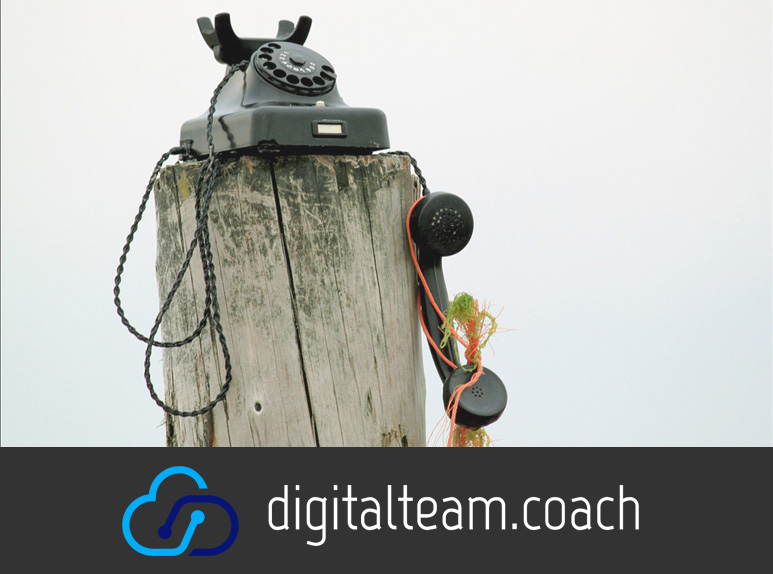Having the newest and shiniest toy does not guarantee you have the best toy.
In the same way, the newest system does not guarantee you have the best system. Sometimes having a tried and true system is the best system. But if you have been using the same systems or methods for years, there may well be substantial benefits that you are missing out on. The argument could be that it is too inconvenient or costly to change or upgrade. That the cost is not worth it…
On the flip side, what is the cost of not changing? What is the cost of keeping that old system? Here are 7 costs to consider:
1. Missing out on richer features
Newer systems utilise new and faster technologies, growing on the knowledge and experience of previous systems. An old mobile phone could make calls and send text messages. Smart phones can do infinitely more. A basic example demonstrating that we really do not wish to have the old phone! Why? Because you get a lot more now than before. You get multiple cameras, voice commands, apps that can do anything… you get the point?!
2. Paying more for an older system
If you are using an old system or you are on an old payment plan, you may well be paying more than a new system on a new plan. This is not always the case but worth doing your homework. In the same way you should check your electricity plan every 12 months to make sure that you are not being taken for a ride by your electricity provider, you should do your homework and check the price and value of other similar systems.
3. Wasting time using old methods
Automation is increasingly saving time in all modern systems, taking away work that needed to be done manually. So if you are doing work that involves copying and pasting, you may be spending unnecessary time on administration that new systems can do for you. If you are spending 2 hours a week on unnecessary tasks, that is 100 hours a year you could be spending on more rewarding tasks. Who doesn’t want 100 hours a year up their sleeves!?
4. Under-utilised features
Regardless of which system you use, it is well worth checking if you are utilising it to its full potential. Now some features may not be necessary for your organisation, but there are often features that are neglected unintentionally, that could save you time and give you extra value, value that you are already paying for. Spend 30 minutes poking around in the backend of your systems, checking system settings or your admin area, reading the latest online documentation, to see if you can get more out of your system.
5. Missing integration with other systems
New and mature systems tend to have strong integration with other popular systems. Integration means your systems talk together and play nicely together, to give you a smoother experience, saving time on automating data and reducing the number of tasks you need to do. If your current systems are not talking together, then you are probably doing more work than you need to.
6. Reinforcing bad habits
Without generalising too heavily, if you are using old and outdated systems, you are probably more prone to finding it hard to change the way you do things. The longer you keep doing things the same way, the harder it will be to change systems when it gets to crunch time. By not being prepared to change, the longer you reinforce doing things the old way, which ultimately wastes time, and will lead you towards being a technological and methodical laggard.
7. Your competition is leaving you behind
Progress does not wait until the world is ready and neither do your competitors.
If you keep doing things the same old way and your competitors do not, your audience will know. The longer you leave it, the more out of touch you will be with your industry and the requirements of your audience. For example, if your competition offers online services and you do not, potential customers will tend towards using your competitors’ services out of sheer convenience.
This does not mean that you need to sacrifice your winning differentiators like good old fashioned customer service. It does not mean you need to be an early adopter for all new technology. But you owe it to yourself (and your customers) to know what is available, what the benefits are and what the cost might be.
So where to from here?
Tip #1 – don’t be afraid of learning something new!
Explore. Do some homework. Start googling. See what else there is. Check out what other systems compare, what they have to offer, what they cost. Read reviews. Read comparisons. Look at pricing pages. Do an analysis. Ask other associates what they use, what works, what doesn’t work. Do an honest SWAT analysis. Write a list of system needs and wants. Write a strategy of how and when you will upgrade your system.
Tip #2 – there’s no good time to upgrade (but some times are better than others)
We all have busy seasons. So grab a pen and highlight the next week in your schedule that is quieter and take a couple of hours to poke at possibilities. It will be time well spent. And remember that the value of a system is not the price but what you get out of it.
There are also opportunties to get systems on special, particularly around Black friday Cyber Monday, Memorial Day & Boxing Day sales.
New systems often attract discounts (and lifetime subscriptions) for new patrons. Check out online deal sites for entrepreneurs such as Appsumo (referral link) and StackSocial.





